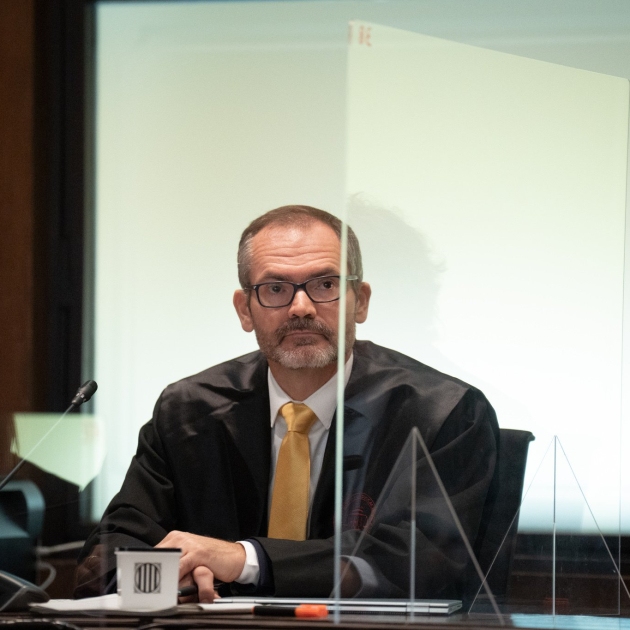The European Court of Human Rights (ECHR) has accepted a case presented by the Catalan pro-independence politician Josep Costa, and as a result Spain will have to answer for its alleged persecution of the Catalan Parliament's Bureau. It was almost a year ago that the former first deputy speaker of the Catalan chamber and ex-deputy for Together for Catalonia (Junts) took Spain to court over the charges of disobedience that were brought against the pro-independence members of Parliament's governing body led by then-speaker Roger Torrent, all of whom were finally acquitted at the end of 2022.
The suit maintains that during 2019 Costa was "subjected to persistent coercion by the Spanish government and the Constitutional Court, which sought to impose a prohibition on any parliamentary debate" on the Spanish monarchy and on Catalonia's right to self-determination. Now, the ECHR has admitted this case for a hearing and has communicated this admission to Spain, which will have to answer questions about the facts that Costa denounces and his fundamental rights.
Costa's accusation against Spain
The case presented to the Human Rights court argues that the case against the former members of the Bureau was illegal and that the decision of the Catalan High Court (TSJC) to admit it, following a public prosecutor's complaint, "absolutely omits any reference to parliamentary inviolability" which, in Costa's opinion, precluded the admittance of the complaint, given that he was partially protected from prosecution as an MP. He explains that he appealed against Vox's presentation of a private prosecution in the case and that he also successfully challenged two of the judges appointed to the case (the TSJC president, Jesús María Barrientos, and Carlos Ramos), but the investigator either "did not admit or dismissed all appeals and incidents in a clearly arbitrary manner and while applying absurd or far-fetched interpretations." Costa's suit also states that he complained of undue delays in resolving the urgent interim injunction he requested when he was arrested for not attending a court summons and criticizes "the rapid dismissal" of his appeal for constitutional protection by the Constitutional Court, which refused to admit his allegation of violation of the right to an impartial judge, and dismissed the rest of his claim considering that he did not act protected by parliamentary inviolability.
Almost a month ago, the ECHR already admitted another appeal by Costa asserting "coercion" by the Constitutional Court against the Catalan Parliament. Presented in 2020, it denounced "coercion and censorship" by the Spanish Constitutional Court against the Catalan chamber. For this earlier case, the Spanish state has until October 31st to respond to the accusations of the Catalan politicians.
